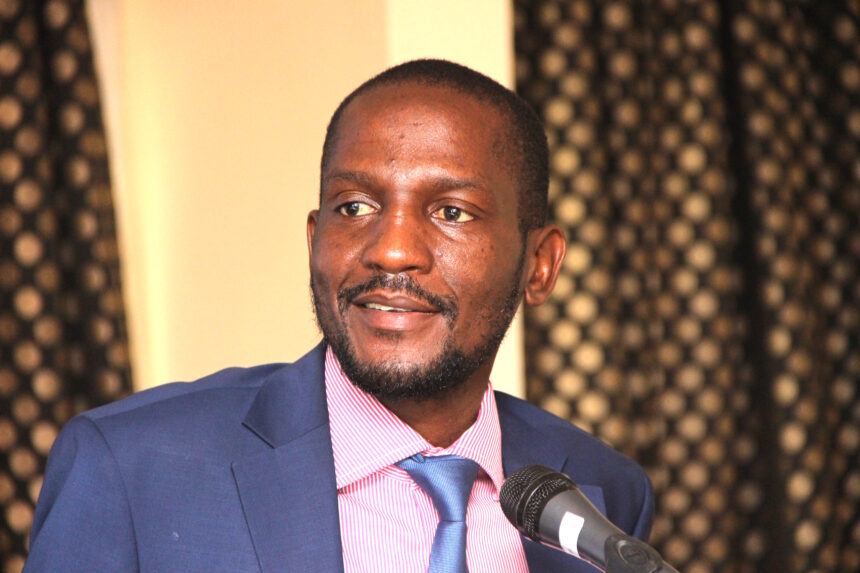Legislators Veikko Nekundi and Tjekero Tweya have voiced concerns about the proposed Ombudsman Bill’s definition of human rights, which in the current form could serve a sinister agenda, they claim.
Nekundi warned that without an explicit definition aligned with Article 144 of the Namibian Constitution, the bill could be exploited to advocate LGBTQ+ rights, questioning whether any ratified international instruments promoting “gayisms” exist.
Clarity
The vocal Nekundi questioned, “Have we ratified any instruments, be it this current Parliament or the previous Parliament, that promote gayisms and others?
I am asking because when I engage international colleagues, they refer to the United Nations charter on fundamental human rights and talk about gay and lesbians as one of the rights protected by that charter”.
In fact, he added that the United Nations charter does not single out or mention the LQBTQI+ community.
As such, the Ombudsman Bill has a “problem with the value propositions we discussed last year. Because if it is so, we need to address that before we approve it”.
Reflecting on the bill’s evolution, Tweya said about five years ago, they submitted a report. Just at the edge of finishing their term, “this bill is now being bulldozed”.
He recalled his tenure on the Parliamentary Standing Committee on Constitutional and Legal Affairs five years ago, lamenting that although key concerns from his committee’s report were addressed by the minister, most issues were watered down.“That’s my disappointment,” he said. “This has been a misunderstanding.
United Nations conventions cannot be enforced in Namibia in terms of our Constitution and the human rights definition in this bill.
The definition here states that human rights mean any fundamental rights or freedoms contained in chapter 3 of the Namibian Constitution.
Our allegiance is to the Namibian Constitution and nothing else unless it has passed in this house.
“The secondary definition of human rights or freedoms forming part of the law of Namibia under Article 144 reinforces that point.
It doesn’t talk of anything else. Even then, conventions must pass here. So, it must be put in context,” he clarified.
He said human rights must be defined solely by Article 3 and 144 of the Constitution. No United Nations conventions can override these constitutional definitions unless formally enacted by Parliament.
LGBTQ+
Ted Moyo, a Namibian-born human rights scholar based in Germany, opined that while it is essential to safeguard the country’s constitutional values, it could isolate the country from internationally accepted norms.
“This approach may inadvertently sideline protections that have evolved globally, including those concerning LGBTQI+ rights, which are integral to comprehensive human rights guarantees.
“We must find a balanced path that honours our national Constitution while engaging constructively with our international human rights obligations,” said Moyo.
External pressure
Both lawmakers insist that a clear, constitutionally grounded definition will be important to prevent external pressures from influencing domestic legal interpretations and to safeguard Namibia’s value propositions.
The Ombudsman Bill was recently introduced by Justice Minister Yvonne Dausab. In her motivation, she proposes to separate the Office of the Ombudsman from the Ministry of Justice in terms of administrative and financial responsibilities – much like the Judiciary, which operated under the Ministry of Justice for 25 years before achieving partial autonomy in 2015. “It empowers the Ombudsman to align with international human fights instruments, particularly the Paris Principles regarding the status of National Human Rights Institutions as outlined in the United Nations General Assembly Resolution 48/134 of 1993,” Dausab said in her motivation recently.
The bill aligns with international human rights standards, particularly the Paris Principles, which guide the establishment and functioning of national human rights institutions.
Yesterday, Dausab also addressed concerns raised in Parliament regarding the independence of the Ombudsman if they and their deputy are appointed by the President. She said there is no record of executive interference in the Ombudsman’s work. She added that independence is not determined by who appoints an individual but the institution’s mandate.
-ashikololo@nepc.com.na



